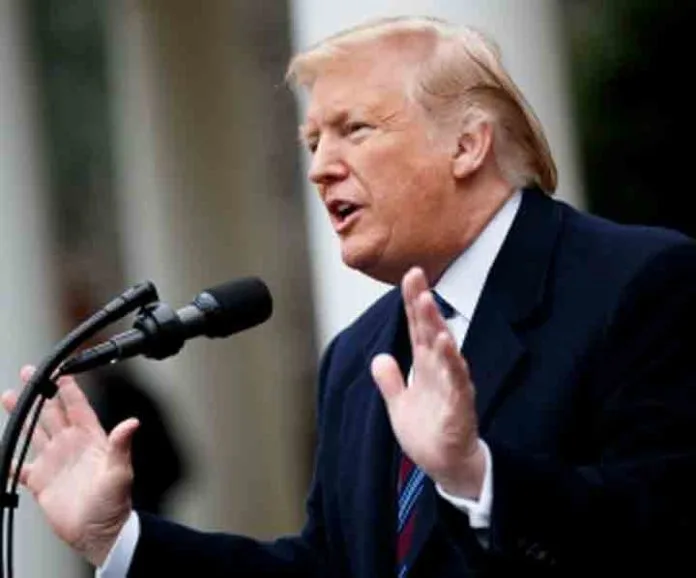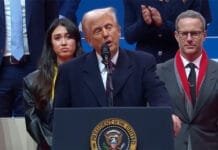Trump Administration Plans to Limit Stay of Foreign Students and Media Personnel in America
The Trump administration is once again preparing for a significant shake-up in U.S. immigration policy. According to reports, the Department of Homeland Security (DHS) has revealed that new rules are being finalized to limit the duration of stay for foreign students and international media personnel. The move is being framed as part of the government’s broader crackdown on illegal immigration and visa abuse.
Foreign Students Under New Scrutiny
Currently, most international students enter the United States on F-1 visas, which allow them to stay for the duration of their academic program. This has traditionally meant that students could remain in the country for as long as their studies required, with extensions available for training programs like OPT (Optional Practical Training).
However, the Trump administration’s proposed changes would replace this flexible system with fixed terms of stay, potentially limiting how long a student can remain in the U.S. regardless of the length of their degree program. DHS officials argue that this step is necessary to prevent overstays and ensure tighter compliance with immigration rules.
Media Personnel Also Affected
In addition to students, foreign journalists and media representatives—often present in the U.S. under I visas—will also see their stay restricted under the new framework. Traditionally, I visa holders could remain in the U.S. as long as they were accredited by their employer and recognized by the government.
The proposed rule would cap their stay to a specific duration, requiring renewals and additional scrutiny. Officials claim this adjustment will help curb misuse of media visas and ensure that only those actively engaged in legitimate journalism remain in the country.
DHS Statement on Visa Reform
In its statement, the Department of Homeland Security underscored the need for these reforms, citing repeated cases of visa overstays, loopholes, and abuses that compromise national security and immigration integrity.
“When the proposed rules are finalized, the duration of stay for many visa holders in the United States will be limited. Foreign students and international media personnel are among those who will be affected,” the DHS statement declared.
The agency further stressed that this measure is designed to create accountability among foreign nationals and their sponsoring institutions, while also giving immigration authorities better oversight of who enters and stays in the country.
Impact on International Students
The U.S. remains the top destination for higher education, hosting over one million foreign students annually. Critics warn that restricting visa durations could discourage talented students from choosing American universities, potentially hurting U.S. institutions that rely heavily on international enrollment.
Supporters of the plan, however, argue that stricter limits will reduce abuse of student visas, prevent individuals from extending their stay indefinitely, and prioritize opportunities for American students in academic and research programs.
Impact on Global Media Presence in the U.S.
For international journalists, the restrictions could signal a major change in how global media organizations operate within the U.S. By limiting the stay of foreign correspondents, the Trump administration aims to increase transparency and reduce misuse of media access.
While this may streamline oversight, media freedom advocates argue that it risks undermining international press coverage, restricting reporting diversity, and weakening the U.S.’s image as a hub of free expression.
Broader Immigration Crackdown
This move is part of a wider immigration agenda pursued by the Trump administration. Over the past years, the White House has:
Tightened H-1B visa rules, limiting the influx of foreign tech workers.
Implemented stricter vetting procedures for Green Card applicants.
Proposed the “Gold Card” program for wealthy foreign investors.
Increased restrictions on asylum seekers and temporary visa holders.
The proposed changes targeting students and media personnel reflect the administration’s commitment to reduce long-term stays under temporary visas and to ensure greater compliance with U.S. immigration law.
What Comes Next
The proposed rules are currently under review and will likely go through a public comment period before they are finalized. Once enforced, foreign students and media representatives will face new stay limits, renewal requirements, and possible changes to their visa processing timelines.
Immigration experts believe this will reshape the landscape of U.S. higher education and media presence, while also fueling debates about America’s global competitiveness and openness to international talent.
Conclusion
The Trump administration’s push to limit the stay of foreign students and media personnel marks another turning point in U.S. immigration policy. While the government frames it as a necessary step to combat illegal immigration and visa misuse, critics fear it could have unintended consequences for America’s universities, international reputation, and press freedoms.
As DHS prepares to finalize these rules, the debate over how far the U.S. should go in restricting visas is set to intensify, with profound implications for both domestic and global communities.















